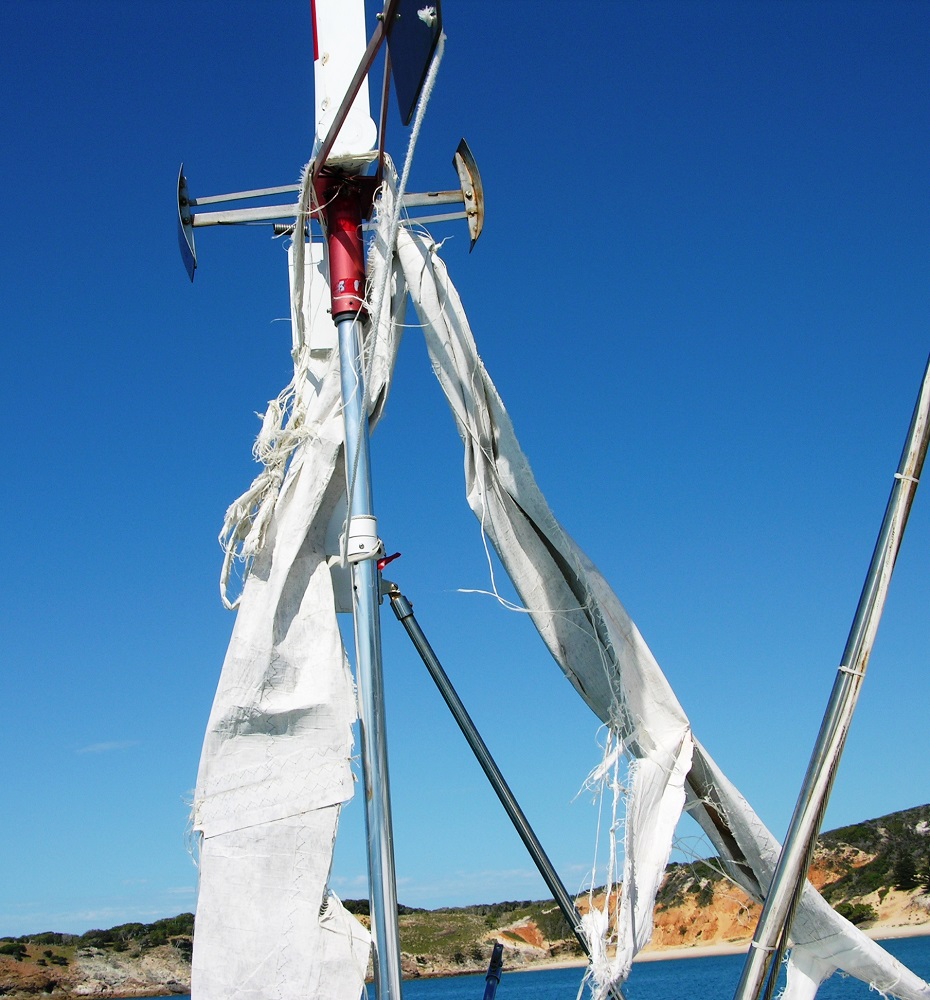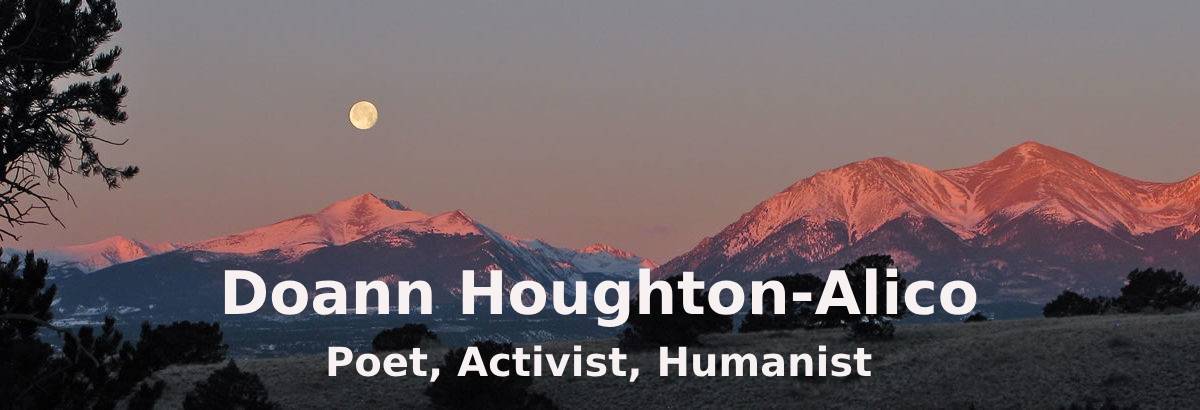The “bomb cyclone” that hit the Denver area the other day (in 2019, but, thankfully, missed my area in the mountains), reminded me of this storm, which was unpredicted, unlike the Denver storm, but equally as nasty in it’s oceanic way. It was the first (and last, so far) time I felt fear when sailing. It happened six years into our circumnavigation and after many previous years of sailing. Here’s an excerpt about it, which starts out “Voice of a Voyage,” my travel memoir, published by Sunstone Press. It was only one of many adventures we were to experience during the ten years of our circumnavigation.
Knowing Fear
Roooll, tharump, roooll, tharump: spice jars, plates, CDs, and everything else slides back and forth in harsh dissonance. Our boat slashes through whale-sized waves. Sounds mix discordantly: the swirling violent wind; waves crashing on deck as if we are slamming into a brick wall; all our possessions skidding back and forth in their lockers; metal against metal as the mainsail boom, although sheeted in, swings just violently enough for the mandrel to break, adding that jarring pattern to this frightening cacophony.
This storm wants us out of its way. If it has to smash us to pieces to get on, that’s what will happen. I watch our mainsail immediately torn to shreds. In this, our ultimate storm, there isn’t time to get it down. Pieces fly by, some catch in the wind generator. It jams, blades broken, metal stand akimbo.
I am wedged in the navigation station seat in the pilothouse. Although here I’m protected from the main force of the storm, I cower as a wave towers over us and crashes down on the roof, green water splaying over the cockpit and aft deck. My husband, Wayne, is now in the cockpit hand-steering. We’re literally between a rock and a hard place. The rocks are about one hundred yards behind us and the solid coast of an Australian island about one-third of a mile ahead. No room to maneuver away from the wind. We can’t turn and head downwind because of the land configuration. We have no choice but to turn directly into the wind and take it head on.
Wayne starts the engine at full cruise power, but we’re making no progress away from the rocks. He revs up to full throttle, which is barely keeping us away. I look back to see if Wayne is still there, wondering how I can possibly save him if he isn’t, yet knowing that would be impossible. I try to yell against the wind, “The anemometer’s pegged out at 60 knots.” He can’t hear me. It makes no difference; it doesn’t read any higher. This wind is much faster than that.
It is a freak storm. For the first time when sailing I know fear, yet I’m not frightened in an adrenalin-rush sense. Between wave and wind karate chops, I wonder, Why not? Shouldn’t I be scared to death? There is time to think as there isn’t anything I can really do about my situation. Besides, I can’t move without being knocked about. My eyes are locked on these vicious, furious dark green-black waves trying with all their natural might to knock us over. My brain is split. Half is aware of the need to react to what will happen. Half is floating somewhere above all this madness. Knowing fear and being terrified aren’t the same. What is it that I really fear? Being out of control? Of having no choices? Of being a puppet in a play that I not only didn’t write, but couldn’t even imagine? Somehow I don’t think it is death.
It was unpredicted, and no weather patterns have shown it as a possibility. It comes up so quickly, Wayne is wearing only shorts and soon gets hypothermia. I go out and steer, while he warms up in the pilot house. I block myself on the side of the wheel leveraged against the cockpit seat—it’s the only way I can get enough strength to turn the wheel, otherwise, the force of the waves is too great, and I’ll be knocked overboard. No more thinking. I become some sort of physical machine wrenching the wheel this way, then afraid I’ve over-steered, tugging it back. The bow plunges down; I hold my breath a moment until I can sense it coming up again. I feel the pattern, but I’m not fitting into it, so I work harder. Suddenly I am no longer afraid—only because machines don’t have feelings.
The storm lasts a little over two hours, but it is a time not told by clocks. My life did not flash before my eyes, but much else did.

At anchor the next day, one of Bali Ha’i’s shredded sails and the broken wind generator.
